
Sheng Keyi on Mo Yan: “Literature Supersedes Politics and Everything Else”
In a recent conversation at the Asia Society, novelist Sheng Keyi said she felt the critism of Mo Yan’s Nobel Prize was unjustified. The...

In a recent conversation at the Asia Society, novelist Sheng Keyi said she felt the critism of Mo Yan’s Nobel Prize was unjustified. The...
Mo Yan accepted his Nobel Prize for Literature in Stockholm on December 10.
The 57-year-old novelist often writes stories based on memories of his village childhood, and his work and his political views have triggered wide debate. ...
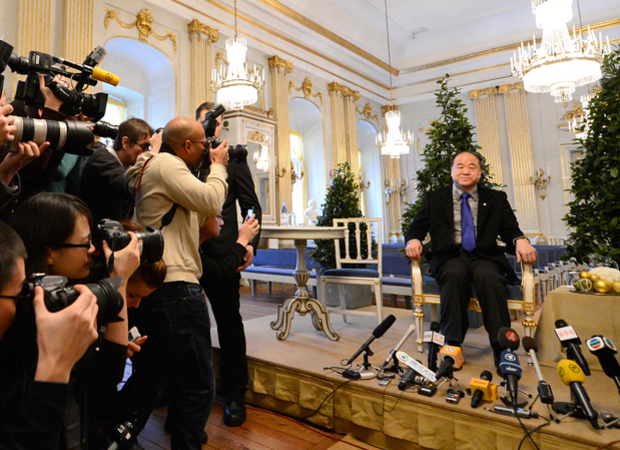
When Chinese novelist Mo Yan accepted the Nobel Prize in Literature earlier this week, the relationship between literature and politics attracted much attention. The...
In Chinese, there are an impressive number of ways to describe saying nothing at all. When a person is determined to speak at length but not in depth, he can embark on a long jog of feihua—literally, wasted words—or perhaps pass the time at the...
On October 11 Peter Englund, permanent secretary of the Swedish Academy in Stockholm, announced that the Nobel Prize in Literature for 2012 will go to the fifty-seven-year-old Chinese writer Guan Moye, better known as Mo Yan, a pen name that...
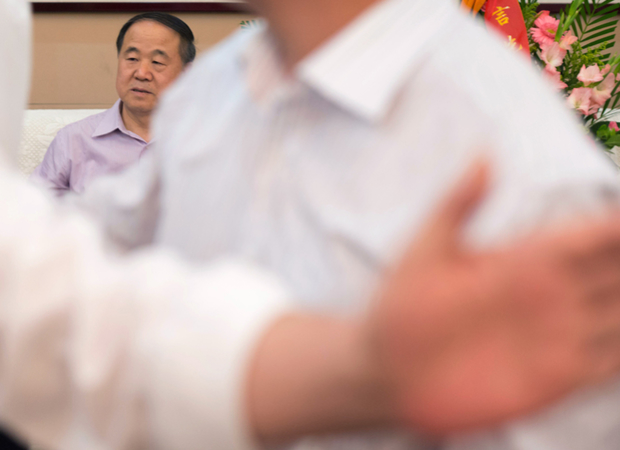
On October 11 Peter Englund, permanent secretary of the Swedish Academy in Stockholm, announced that the Nobel Prize in Literature for 2012 will go to the fifty-seven-year-old Chinese writer Guan Moye, better known as Mo Yan, a pen name that...
Mo Yan had a tuxedo made for the December 10 prize gala in Stockholm and is studying the waltz, in case he's invited to dance.
Chinese-born author best known for her 1952 book A Many-Splendoured Thing. The film of her 1952 book A Many-Splendoured Thing may have been just a classic weepie, but the original novel shocked Hong Kong with its tale of her love affair with a...
Even before the Swedish Academy announced Mo Yan as the 2012 Nobel Literature Prize winner, the Chinese internet was abuzz with discussion of his work and his relationship with the Chinese government.
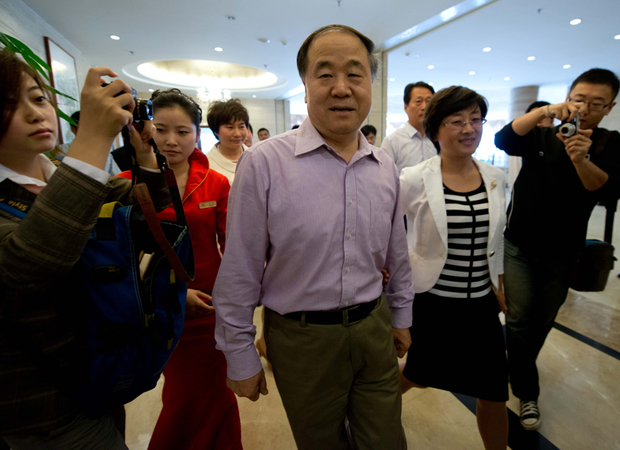
Upon hearing the news that novelist Mo Yan was awarded the 2012 Nobel Prize in Literature, a flurry of messages about the fifty-seven-year-old Shandong native circulated on weibo, China’s equivalent of Twitter, expressing decidedly mixed opinions...
In awarding the 2012 Nobel Prize in Literature to Mo Yan, the Swedish Academy has recognized one of China’s best-known writers, and also fulfilled one of the Chinese government’s most enduring pursuits: a...
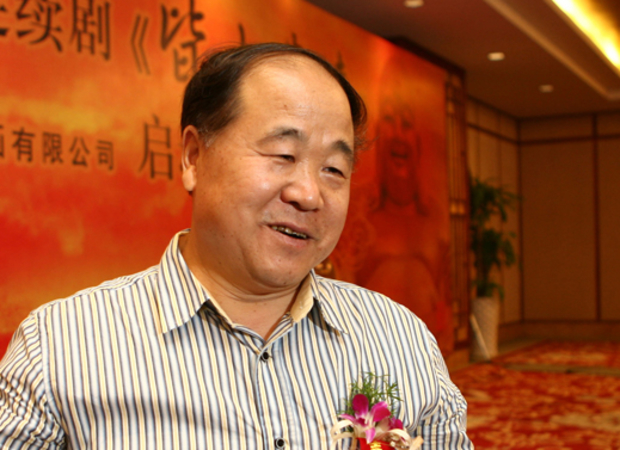
Literature in translation in the United States has wide but shallow roots, making English language stars out of the likes of Gabriel Garcia Márquez and Haruki Murakami, but leaving most of China’s writers struggling to take hold. Now, veteran...
The Swedish Academy announced on Thursday that it had awarded the 2012 ...
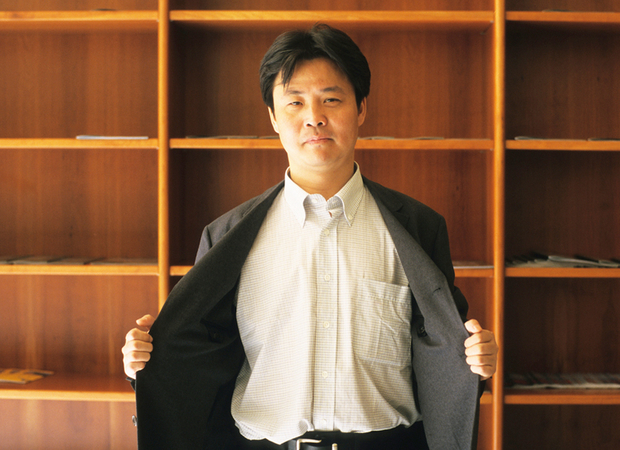
A little over a year ago, I went with the Chinese writer Yu Hua to his hometown of Hangzhou, some one hundred miles southwest of Shanghai, and realized that his bawdy books might not be purely fictional; their characters and situations seemed to...
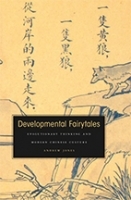
In 1992 Deng Xiaoping famously declared, “Development is the only hard imperative.” What ensued was the transformation of China from a socialist state to a capitalist market economy. The spirit of development has since become the prevailing creed of the People’s Republic, helping to bring about unprecedented modern prosperity, but also creating new forms of poverty, staggering social upheaval, physical dislocation, and environmental destruction.
Qiu Miaojin—one of the first openly lesbian writers in ’90s post-martial-law Taiwan—committed suicide at the age of 26. What follows is an excerpt from her “survival manual” for a younger generation. With an introduction by translator Bonnie Huie...
Before most readers in China learned of Romeo and Juliet, they were captivated by a love triangle between a boy and his two female cousins. It's the "single most famous love triangle in Chinese literary history," says author...
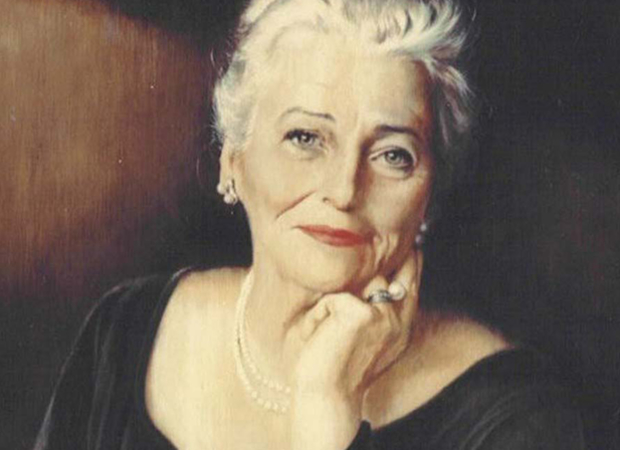
In the summer of 1934, Pearl Buck boarded a ship in Shanghai that was bound for America. She was forty-two years old, and had lived for thirty-four of those years in China, mostly in cities along the Yangzi River. Pearl and her first husband,...
Has China’s most famous blogger finally been brought to heel? Han Han, writer, car racer, and China’s youth opinion leader, recently sealed a deal with massive Chinese Internet company Tencent and founded an e-journal, “One.”
Qian Xiaohong is a young woman from a village in Hunan who went to the boomtown of Shenzhen in the 1990s in search of work. She is bold and optimistic, if sometimes a little naïve, and has short black hair with just a hint of curl. She has the...
Amid very little fanfare, the Writers Publishing House, one of China’s most prestigious publishers of literary fiction, brought out a book entitled “One Hundred Writers’ and Artists’ Hand-Copied Commemorative Edition of the ‘Yan’an Talks.”’
When I arrived at the London Book Fair on Monday, April 16, I saw a huge sign outside showing a cute Chinese boy holding an open book with the words underneath him: “China: Market Focus.” The special guest of this year’s fair was the Chinese...
The February 2012 issue of the Journal of Asian Studies opens with a trio of short articles exploring major trends in China-related publishing over the past decade. The essays, which differ widely in topic, are connected by a concern...
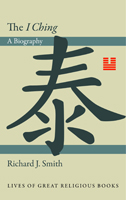
The I Ching originated in China as a divination manual more than three thousand years ago. In 136 BCE the emperor declared it a Confucian classic, and in the centuries that followed, this work had a profound influence on the philosophy, religion, art, literature, politics, science, technology, and medicine of various cultures throughout East Asia. Jesuit missionaries brought knowledge of the I Ching to Europe in the seventeenth century, and the American counterculture embraced it in the 1960s.
My name is Thousands (“Yiqianji”) and I’ve worked in all sorts of jobs. Most recently, I’ve been spending my time at home writing, and in my spare time, help my mother out picking vegetables. (With the recession, a good job’s hard to find.) Every...
It was said that Mr. Sheng suffered from a kind of senile dementia caused by some infarction in his brain. I was sure it was neither Parkinson’s nor Alzheimer’s, because I had learned quite a bit about both during my training to be a health aide...

Our podcast this week is all about books and money in modern China. If you, like us, are tired of Lu Xun and Lao She, listen to Sinica this week as we look into the state of contemporary Chinese literature, asking what writers are hot, what...
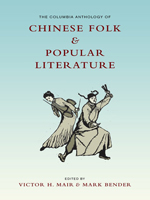
In The Columbia Anthology of Chinese Folk and Popular Literature, two of the world’s leading sinologists, Victor H. Mair and Mark Bender, capture the breadth of China’s oral-based literary heritage. This collection presents works drawn from the large body of oral literature of many of China’s recognized ethnic groups—including the Han, Yi, Miao, Tu, Daur, Tibetan, Uyghur, and Kazak—and the selections include a variety of genres.
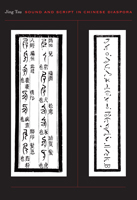
What happens when language wars are not about hurling insults or quibbling over meanings, but are waged in the physical sounds and shapes of language itself? Native and foreign speakers, mother tongues and national languages, have jostled for distinction throughout the modern period. The fight for global dominance between the English and Chinese languages opens into historical battles over the control of the medium through standardization, technology, bilingualism, pronunciation, and literature in the Sinophone world.
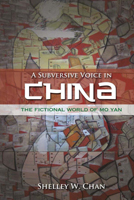
Mo Yan, the most prolific writer in present-day China as well as one of its most prominent avant-gardists, is an author whose literary works have enjoyed an enormous readership and have caught much critical attention not only in mainland China, Hong Kong, and Taiwan but also in many other countries around the world. This book provides the most comprehensive exposition of Mo Yan’s fiction in any language. Author Shelley Chan delves into Mo Yan’s entire collection of literary works, considering novels as well as short stories and novellas.
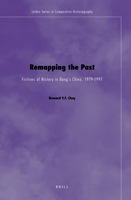
The most prominent literary phenomenon in the 1980s and 1990s in China, historical fiction, has never been systematically surveyed in Anglophone scholarship. This is the first investigation into how, by rewriting the past, writers of Deng Xiaoping’s reform era undermined the grand narrative of official history. It showcases fictions of history by eleven native Chinese, Muslim and Tibetan authors.
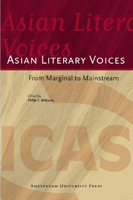
The essays in this collection give voice to a wide range of artists and writers from China, Japan, Korea, and India who to this day remain largely unknown or poorly understood in literary circles around the world. Contributors from Asia, Europe, and the United States cover a wide range of topics from a vast expanse of time, from Sanskrit poetry dating back over a thousand years to Chinese fiction of the twenty-first century. —University of Chicago Press
Charlie Chan, the fictitious Chinese-American detective from Hawaii, makes his first appearance in the movie Charlie Chan in Egypt (1935) looking out the window of an airplane while flying over the Pyramids and the Sphinx. We next see...

Sad as it is to admit, the rare solar eclipse that incited such mayhem on Easter Island earlier this week has thrown our own Beijing community into a tizzy. Or perhaps the culprit is the stultifying heatwave which has descended on our city,...
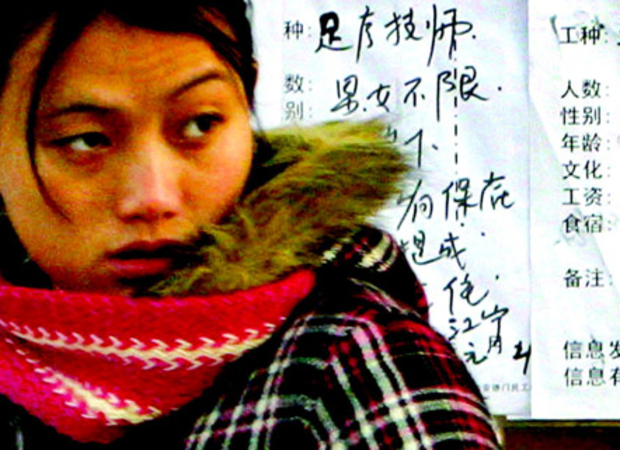
Looking for a little summer reading? This week, Sinica sorts the wheat from the chaff with a massive review of books on China. Our discussion touches on a everything from Chinese fiction to non-fiction academic works on Chinese politics,...
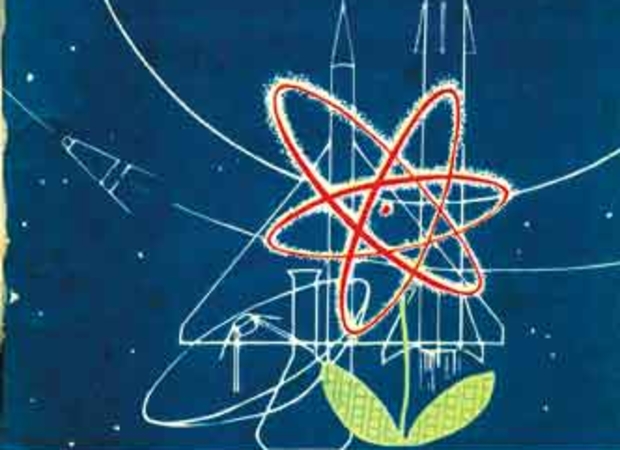
Science fiction serves as a kind of mirror for how a society sees itself in the future. So what future do Chinese sci-fi writers envision in the far-off yet-to-come? And what role does China play in that future? Do contemporary Chinese writers...
Ian Buruma’s life would itself make a nice subject for a novel. His father was Dutch; his mother was British, from a family that emigrated from Germany in the nineteenth century; as an undergraduate in the Netherlands he focused on Chinese...
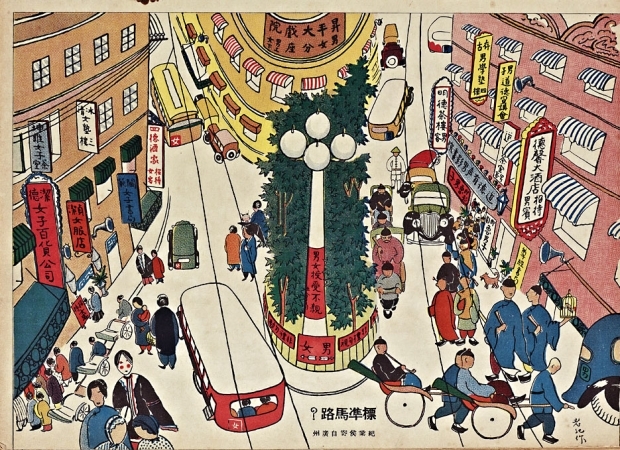
In April 1924 Rabindranath Tagore arrived in Shanghai for a lecture tour of China. Soon after receiving the Nobel Prize for Literature in 1913, Tagore had become an international literary celebrity, lecturing to packed audiences from...

There are many reasons for getting tattooed. But a sense of belonging—to a group, a faith, or a person—is key. As a mark of identification a tattoo is more lasting than a passport. This is not always voluntary. In Japan, criminals...
To many readers in the past, The Plum in the Golden Vase has seemed an inchoate mass of a story. Even if it was clearly “about” a wealthy urban merchant Hsi-men Ch’ing, his six consorts, and numerous other sexual companions, it was also full of...

Since the Tiananmen Square killings it has become fashionable within the Chinese leadership to refer to dissident intellectuals as “scum.” That was Mao’s view, too. In 1942, the chairman, his armies besieged by both Chiang Kai-shek and the...
Until very recently the great expanse of the Ming dynasty, which ruled in China from 1368 to 1644, was largely uncharted in Western historiography. The dynasty was seen either as having come at the end of a great tradition that had been dominated...
A central crisis in modern Chinese letters has been caused by the need to take account of Western forms. Some writers adjusted eagerly to Western literature out of a sincere admiration for Western culture; some grudgingly, out of a total...
Written Chinese is extremely difficult. Before the revolutions of the twentieth century, the literary language was a barrier protecting the Confucian elite. Anyone who could jump over that barrier by passing the official examinations immediately...
By the 1930s the intolerable quality of life and the inefficiency, corruption, and conservatism of the Kuomintang had driven nearly every serious creative writer in China to the Left. Most turned toward some form of Marxism, which not only...